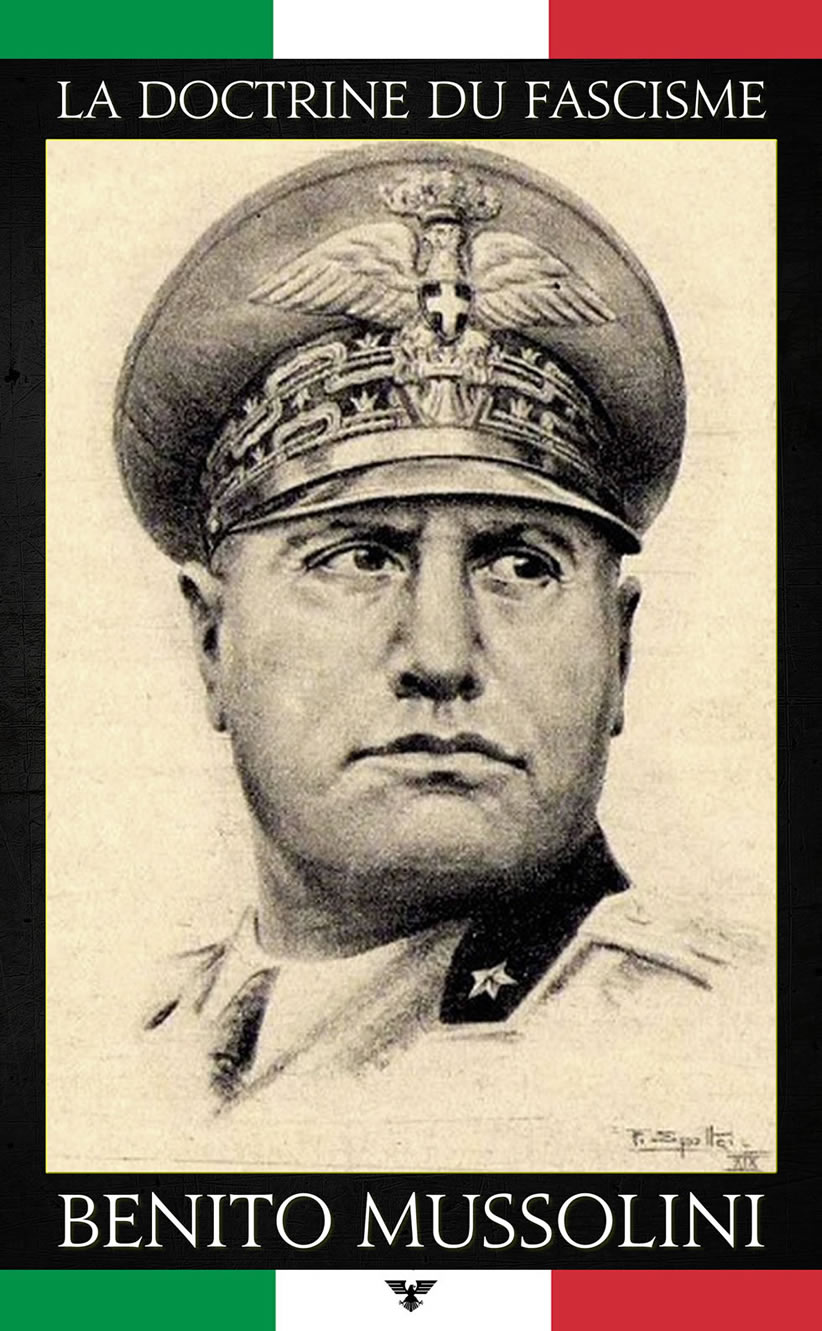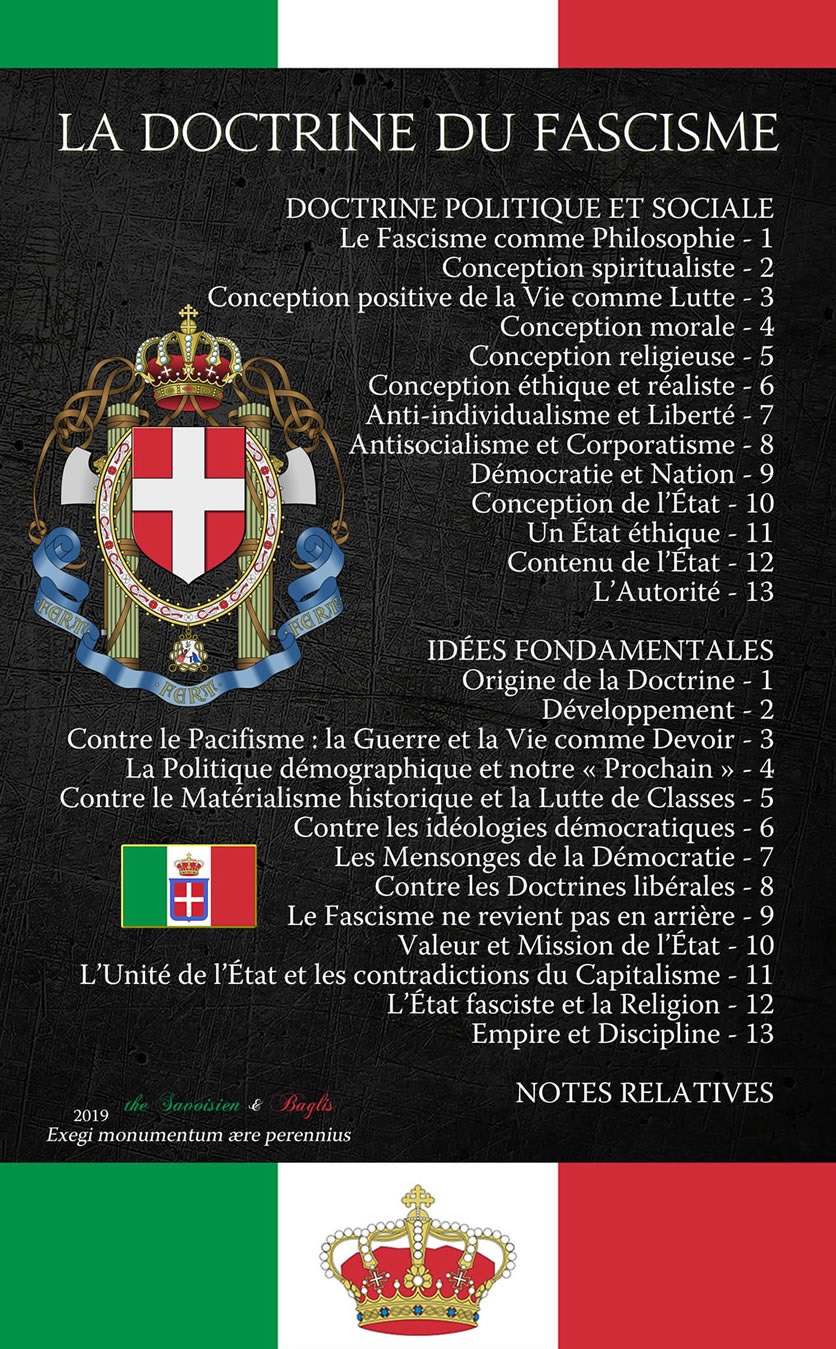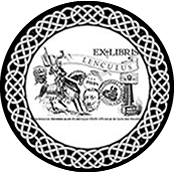Marcus Eli Ravage - Commissary to the gentiles - Audiobook
Read by Alex Linder
Marcus Eli Ravage - Commissary to the gentiles - PDF
Marcus Eli Ravage - A real case against the jews
You Christians worry and complain about the Jew’s influence in your civilization. We are, you say, an international people, a compact minority in your midst, with traditions, interests, aspirations and objectives distinct from your own. And you declare that this state of affairs is a menace to your orderly development; it confuses your impulses; it defeats your purposes; it muddles up your destiny. I do not altogether see the danger. Your world has always been ruled by minorities; and it seems to me a matter of indifference what the remote origin and professed creed of the governing clique is. The influence, on the other hand, is certainly there, and it is vastly greater and more insidious than you appear to realize.
That is what puzzles and amuses and sometimes exasperates us about your game of Jew-baiting. It sounds so portentous. You go about whispering terrifyingly of the hand of the Jew in this and that and the other thing. It makes us quake. We are conscious of the injury we did you when we imposed upon you our alien faith and traditions. Suppose, we say tremblingly, you should wake up to the fact that your religion, your education, your morals, your social, governmental and legal systems, are fundamentally of our making! And then you specify, and talk vaguely of Jewish financiers and Jewish motion-picture promoters, and our terror dissolves in laughter. The goi, we see with relief, will never know the real blackness of our crimes.
We cannot make it out. Either you do not know or you have not the courage to charge us with those deeds for which there is at least a shadow of evidence and which an intelligent judge and jury could examine without impatience. Why bandy about unconvincing trifles when you might so easily indict us for serious and provable offenses? Why throw up to us a patent and clumsy forgery such as the Protocols of the Elders of Zion when you might as well confront us with the Revelation of St. John? Why talk about Marx and Trotski when you have Jesus of Nazareth and Paul of Tarsus to confound us with ?
You call us subverters, agitators, revolution-mongers. It is the truth, and I cower at your discovery. It could be shown with only the slightest straining and juggling of the facts that we have been at the bottom of all the major revolutions in your history. We undoubtedly had a sizable finger in the Lutheran Rebellion, and it is simply a fact that we were the prime movers in the bourgeois democratic revolutions of the century before the last, both in France and America. If we were not, we did not know our own interests. But do you point your accusing finger us and charge us with these heinous and recorded crimes? Not at all! You fantastically lay at our door the recent great War and the upheaval in Russia, which have done not only the most injury to the Jews themselves but which a school-boy could have foreseen would have that result.
But even these plots and revolutions are as nothing compared with the great conspiracy which we engineered at the beginning of this era and which was destined to make the creed of a Jewish sect the religion of the Western world. The Reformation was not designed in malice purely. It squared us with an ancient enemy and restored our Bible to its place of honor in Christendom. The Republican revolutions of the eighteenth century freed us of our age-long political and social disabilities. They benefited us, but they did you no harm. On the contrary, they prospered and expanded you. You owe your preeminence in the world to them. But the upheaval which brought Christianity into Europe was - or at least may easily be shown to have been - planned and executed by Jews as an act of revenge against a great Gentile state. And when you talk about Jewish conspiracies I cannot for the world understand why you do not mention the destruction of Rome and the whole civilization of antiquity concentrated under her banners, at the hands of Jewish Christianity.
It is unbelievable, but you Christians do not seem to know where your religion came from, nor how, nor why. Your historians, with one great exception, do not tell you. The documents in the case, which are part of your Bible, you chant over but do not read. We have done our work too thoroughly; you believe our propaganda too implicitly. The coming of Christianity is to you not an ordinary historical event growing out of other events of the time; it is the fulfilment of a divine Jewish prophecy - with suitable amendments of your own. It did not, as you see it, destroy a great Gentile civilization and a great Gentile empire with which Jewry was at war; it did not plunge mankind into barbarism and darkness for a thousand years; it came to bring salvation to the Gentile world !
Yet here, if ever, was a great subversive movement, hatched in Palestine, spread by Jewish agitators, financed by Jewish money, taught in Jewish pamphlets and broadsides, at a time when Jewry and Rome were in a death-struggle, and ending in the collapse of the great Gentile empire. You do not even see it, though an intelligent child, unbefuddled by theological magic, could tell you what it is all about after a hasty reading of the simple record. And then you go on prattling of Jewish conspiracies and cite as instances the Great War and the Russian Revolution! Can you wonder that we Jews have always taken your anti-Semites rather lightly, as long as they did not resort to violence ?
And, mind you, no less an authority than Gibbon long ago tried to enlighten you. It is now a century and a half since “The Decline and Fall of the Roman Empire” let the cat out of the bag. Gibbon, not being a parson dabbling in history, did not try to account for the end of a great era by inventing fatuous nonsense about the vice and degradation of Rome, about the decay of morals and faith in an empire which was at that very time in the midst of its most glorious creative period. How could he? He was living in the Augustan Age in London which - in spite of nearly two thousand years since the coming of Christian salvation - was as good a replica of Augustan Rome in the matter of refined lewdness as the foggy islanders could make it. No, Gibbon was a race-conscious Gentile and an admirer of the culture of the pagan West, as well as a historian with brains and eyes. Therefore he had no difficulty laying his finger on the malady that had rotted and wasted away the noble edifice of antique civilization. He put Christianity down - the law which went forth from Zion and the word of God from Jerusalem - as the central cause of the decline and fall of Rome and all she represented.
So far so good. But Gibbon did not go far enough. He was born and died, you see, a century before the invention of scientific anti-Semitism. He left wholly out of account the element of deliberation. He saw an alien creed sweeping out of the East and overwhelming the fair lands of the West. It never occurred to him that it was precisely to this destructive end that the whole scheme of salvation was dedicated. Yet the facts are as plain as you please.
Let me in very brief recount the tale, unembroidered by miracle, prophecy or magic.
For a good perspective, I shall have to go back a space. The action conveniently falls into four parts, rising to a climax in the third. The time, when the first curtain rises, is roughly 65 B.C. Dramatis personæ are, minor parts aside, Judea and Rome. Judea is a tiny kingdom off the Eastern Mediterranean. For five centuries it has been hardly more than a geographical expression. Again and again it has been overrun and destroyed and its population carried into exile or slavery by its powerful neighbors. Nominally independent, it is now as unstable as ever and on the edge of civil war. The empire of the West, with her nucleus in the City Republic of Rome, while not yet mistress of the world, is speedily heading that way. She is acknowledged the one great military power of the time as well as the heir of Greece and the center of civilization.
Up to the present the two states have had little or no contact with one another. Then without solicitation on her part Rome was suddenly asked to take a hand in Judean affairs. A dispute had arisen between two brothers over the succession to the petty throne, and the Roman general Pompey, who happened to be in Damascus winding up bigger matters, was called upon to arbitrate between the claimants. With the simple directness of a republican soldier, Pompey exiled one of the brothers, tossed the chief priesthood to his rival, and abolished the kingly dignity altogether. Not to put too fine a point on it, Pompey’s mediation amounted in effect to making Judea a Roman dependency. The Jews, not unnaturally perhaps, objected; and Rome, to conciliate them and to conform to local prejudice, restored the royal office. She appointed, that is, a king of her own choosing. He was the son of an excise-man, an Idumean by race, named Herod. But the Jews were not placated, and continued making trouble. Rome thought it very ungrateful of them.
All this is merely a prelude, and is introduced into the action to make clear what follows. Jewish discontent grew to disaffection and open revolt when their Gentile masters began importing into Jerusalem the blessings of Western culture. Graven images, athletic games, Greek drama, and gladiatorial shows were not to the Jewish taste. The pious resented them as an offense in the nostrils of Jehovah, even though the resident officials patiently explained they were meant for the entertainment and edification of the non-Jewish garrison. The Judeans resisted with especial strenuousness the advent of the efficient Roman tax-gatherer. Above all, they wanted back a king of their own race and their own royal line.
Among the masses the rebellion took the form of a revival of the old belief in a Messiah, a divinely appointed savior who was to redeem his people from the foreign yoke and make Judea supreme among the nations. Claimants to the mission were not wanting. In Galilee, one Judas led a rather formidable insurrection, which enlisted much popular support. John, called the Baptist, operated in the Jordan country. He was followed by another north-country man, Jesus of Nazareth. All three were masters of the technique of couching incendiary political sedition in harmless theological phrases. All three used the same signal of revolt “The time is at hand.” And all three were speedily apprehended and executed, both Galileans by crucifixion.
Personal qualities aside, Jesus of Nazareth was, like his predecessors, a political agitator engaged in liberating his country from the foreign oppressor. There is even considerable evidence that he entertained an ambition to become king of an independent Judea. He claimed, or his biographers later claimed for him, descent from the ancient royal line of David. But his paternity is somewhat confused. The same writers who traced the origin of his mother’s husband back to the psalmist-king also pictured Jesus as the son of Jehovah, and admitted that Joseph was not his father.
It seems, however, that Jesus before long realized the hopelessness of his political mission and turned his oratorical gifts and his great popularity with the masses in quite another direction. He began preaching a primitive form of populism, socialism and pacifism. The effect of this change in his program was to gain him the hostility of the substantial, propertied classes, the priests and patriots generally, and to reduce his following to the poor, the laboring mass and the slaves.
After his death these lowly disciples formed themselves into a communistic brotherhood. A sermon their late leader had once delivered upon a hillside summed up for them the essence of his teachings, and they made it their rule of life. It was a philosophy calculated to appeal profoundly to humble people. It comforted those who suffered here on earth with promised rewards beyond the grave. It made virtues of the necessities of the weak. Men without hope in the future were admonished to take no thought for the morrow. Men too helpless to resent insult or injury were taught to resist not evil. Men condemned to lifelong drudgery and indigence were assured of the dignity of labor and of poverty. The meek, the despised, the disinherited, the downtrodden, were - in the hereafter - to be the elect and favored of God. The worldly, the ambitious, the rich and powerful, were to be denied admission to heaven.
The upshot, then, of Jesus’ mission was a new sect in Judea. It was neither the first nor the last. Judea, like modern America, was a fertile soil for strange creeds. The Ebionim - the paupers, as they called themselves - did not regard their beliefs as a new religion. Jews they had been born, and Jews they remained. The teachings of their master were rather in the nature of a social philosophy, an ethic of conduct, a way of life. To modern Christians, who never tire of asking why the Jews did not accept Jesus and his teachings, I can only answer that for a long time none but Jews did. To be surprised that the whole Jewish people did not turn Ebionim is about as intelligent as to expect all Americans to join the Unitarians or the Baptists or the Christian Scientists.
In ordinary times little attention would have been paid to the ragged brotherhood. Slaves and laborers for the most part, their meekness might even have been encouraged by the solider classes. But with the country in the midst of a struggle with a foreign foe, the unworldly philosophy took on a dangerous aspect. It was a creed of disillusion, resignation and defeat. It threatened to undermine the morale of the nation’s fighting men in time of war. This blessing of the peacemakers, this turning of the other cheek, this non-resistance, this love your enemy, looked like a deliberate attempt to paralyze the national will in a crisis and assure victory to the foe.
So it is not surprising that the Jewish authorities began persecuting the Ebionim. Their meetings were invaded and dispersed, their leaders were clapped into jail, their doctrines were proscribed. It looked for awhile as if the sect would be speedily wiped out. Then, unexpectedly, the curtain rose on act three, and events took a sudden new turn.
Perhaps the bitterest foe of the sectaries was one Saul, a maker of tents. A native of Tarsus and thus a man of some education in Greek culture, he despised the new teachings for their unworldliness and their remoteness from life. A patriotic Jew, he dreaded their effect on the national cause. A traveled man, versed in several languages, he was ideally suited for the task of going about among the scattered Jewish communities to counteract the spread of their socialistic pacifistic doctrines. The leaders in Jerusalem appointed him chief persecutor to the Ebionim.
He was on his way to Damascus one day to arrest a group of the sectaries when a novel idea came to him. In the quaint phrase of the Book of Acts he saw a vision. He saw as a matter of fact, two. He perceived, to begin with, how utterly hopeless were the chances of little Judea winning out in an armed conflict against the greatest military power in the world. Second, and more important, it came to him that the vagabond creed which he had been repressing might be forged into an irresistible weapon against the formidable foe. Pacifism, non-resistance, resignation, love, were dangerous teachings at home. Spread among the enemy’s legions, they might break down their discipline and thus yet bring victory to Jerusalem. Saul, in a word, was probably the first man to see the possibilities of conducting war by propaganda.
He journeyed on to Damascus, and there to the amazement alike of his friends and of those he had gone to suppress, he announced his conversion to the faith and applied for admission to the brotherhood. On his return to Jerusalem he laid his new strategy before the startled Elders of Zion. After much debate and searching of souls, it was adopted. More resistance was offered by the leaders of the Ebionim of the capital. They were mistrustful of his motives, and they feared that his proposal to strip the faith of its ancient Jewish observances and practices so as to make it acceptable to Gentiles would fill the fraternity with alien half-converts, and dilute its strength. But in the end he won them over, too. And so Saul, the fiercest persecutor of Jesus’ followers, became Paul, the Apostle to the Gentiles. And so, incidentally, began the spread into the pagan lands of the West, an entirely new Oriental religion.
Unfortunately for Paul’s plan, the new strategy worked much too well. His revamped and rather alluring theology made converts faster than he had dared hope, or than he even wished. His idea it should be kept in mind, was at this stage purely defensive. He had as yet no thought of evangelizing the world; he only hoped to discourage the enemy. With that accomplished, and the Roman garrisons out of Palestine, he was prepared to call a truce. But the slaves and oppressed of the Empire, the wretched conscripts, and the starving proletariat of the capital itself, found as much solace in the adapted Pauline version of the creed as the poor Jews before them had found in the original teachings of their crucified master. The result of this unforseen success was to open the enemy’s eyes to what was going on. Disturbing reports of insubordination among the troops began pouring into Rome from the army chiefs in Palestine and elsewhere. Instead of giving the imperial authorities pause, the new tactics only stiffened their determination. Rome swooped down upon Jerusalem with fire and sword, and after a fierce siege which lasted four years, she destroyed the nest of the agitation (70 A.D.). At least she thought she had destroyed it.
The historians of the time leave us in no doubt as to the aims of Rome. They tell us that Nero sent Vespasian and his son Titus with definite and explicit orders to annihilate Palestine and Christianity together. To the Romans, Christianity meant nothing more than Judaism militant, anyhow, an interpretation which does not seem far from the facts. As to Nero’s wish, he had at least half of it realized for him. Palestine was so thoroughly annihilated that it has remained a political ruin to this day. But Christianity was not so easily destroyed.
Indeed, it was only after the fall of Jerusalem that Paul’s program developed to the full. Hitherto, as I have said, his tactic had been merely to frighten off the conqueror, in the manner of Moses plaguing the Pharaohs. He had gone along cautiously and hesitantly, taking care not to arouse the powerful foe. He was willing to dangle his novel weapon before the foe’s nose, and let him feel its edge, but he shrank from thrusting it in full force. Now that the worst had happened and Judea had nothing further to lose, he flung scruples to the wind and carried the war into the enemy’s country. The goal now was nothing less than to humble Rome as she had hutnbled Jerusalem, to wipe her off the map as she had wiped out Judea.
If Paul’s own writings fail to convince you of this interpretation of his activities, I invite your attention to his more candid associate John. Where Paul, operating within the shadow of the imperial palace and half the time a prisoner in Roman jails, is obliged to deal in parable and veiled hints, John, addressing himself to disaffected Asiatics, can afford the luxury of plain speaking. At any rate, his pamphlet entitled “Revelation” is, in truth, a revelation of what the whole astonishing business is about.
Rome, fancifully called Babylon, is minutely described in the language of sputtering hate, as the mother of harlots and abominations of the earth, as the woman drunken with the blood of saints (Christians and Jews), as the oppressor of “peoples and multitudes and nations and tongues” and - to remove all doubt of her identity - as “that great city which reigneth over the kings of the earth.” An angel triumphantly cries, “Babylon the great is fallen, is fallen.” Then follows an orgiastic picture of ruin. Commerce and industry and maritime trade are at an end. Art and music and “the voice of the bridegroom and of the bride” are silenced. Darkness and desolation lie like a pall upon the scene. The gentle Christian conquerors wallow in blood up to the bridles of their horses. “Rejoice over her, thou heaven, and ye holy apostles and prophets; for God hath avenged you on her.”
And what is the end and purpose of all this chaos and devastation? John is not too reticent to tell us. For he closes his pious prophecy with a vision of the glories of the new - that is, the restored - Jerusalem: not any allegorical fantasy, I pray you, but literally Jerusalem, the capital of a great reunited kingdom of “the twelve tribes of the children of Israel.”
Could anyone ask for anything plainer ?
Of course, no civilization could forever hold out against this kind of assault. By the year 200 the efforts of Paul and John and their successors had made such headway among all classes of Roman society that Christianity had become the dominant cult throughout the empire. Meantime, as Paul had shrewdly foreseen, Roman morale and discipline had quite broken down, so that more and more the imperial legions, once the terror of the world and the backbone of Western culture, went down to defeat before barbarian invaders. In the year 326 the emperor Constantine, hoping to check the insidious malady, submitted to conversion and proclaimed Christianity the official religion. It was too late. After him the emperor Julian tried to resort once more to suppression. But neither resistance nor concession were of any use. The Roman body politic had become thoroughly wormeaten with Palestinian propaganda. Paul had triumphed.
This at least is how, were I an anti-Semite in search of a credible sample of subversive Jewish conspiracy, I would interpret the advent of a modified Jewish creed into the Western world.
Source : The Century Magazine, vol. 115, no. 4, February, 1928, pp. 476-83.
Marcus Eli Ravage - Un vrai grief contre les juifs
Zwei jüdische Aufsätze vom Juden Marcus Eli Ravage
Marcus Eli Ravage - PDF
Jean Patrice - Communism unmasked
Germar Rudolf - Christianity is jewish
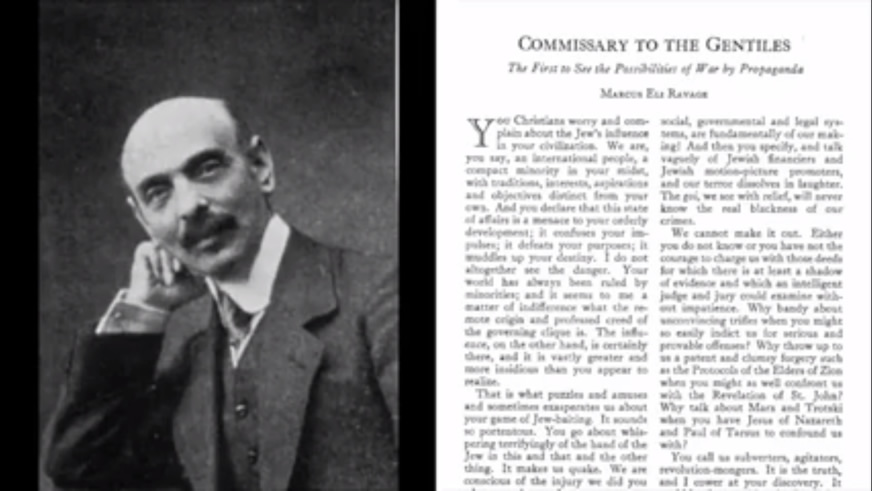



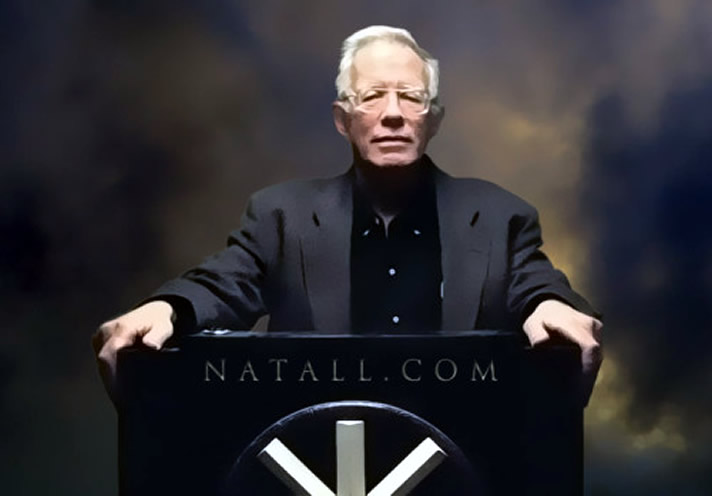

 Im Vordergrund standen archäologische, anthropologische und geschichtliche Forschungen und Expeditionen. Während des Zweiten Weltkrieges beteiligte sich das Ahnenerbe am systematischen Kunstraub. Seine Leitungsebene war identisch mit der aus dem Ahnenerbe hervorgegangenen Institut für wehrwissenschaftliche Zweckforschung, das für andere Einrichtungen wie die Luftwaffe, aber auch eigeninitiativ, Menschenversuche in den Konzentrationslagern Natzweiler-Struthof und Dachau, sowie den Außenlagern Schlachters, Forelle und Lochau durchführte. Daneben nutzte der stark an okkulten Themen interessierte Himmler das Ahnenerbe als Apparat für weitere Projekte im persönlichen Interesse.
Im Vordergrund standen archäologische, anthropologische und geschichtliche Forschungen und Expeditionen. Während des Zweiten Weltkrieges beteiligte sich das Ahnenerbe am systematischen Kunstraub. Seine Leitungsebene war identisch mit der aus dem Ahnenerbe hervorgegangenen Institut für wehrwissenschaftliche Zweckforschung, das für andere Einrichtungen wie die Luftwaffe, aber auch eigeninitiativ, Menschenversuche in den Konzentrationslagern Natzweiler-Struthof und Dachau, sowie den Außenlagern Schlachters, Forelle und Lochau durchführte. Daneben nutzte der stark an okkulten Themen interessierte Himmler das Ahnenerbe als Apparat für weitere Projekte im persönlichen Interesse.


